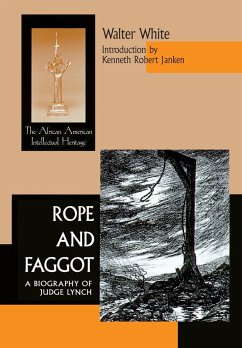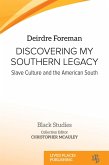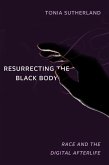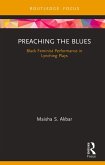In 1926, Walter White, assistant secretary of the National Association for the Advancement of Colored People, broke the story of a horrific lynching in Aiken, South Carolina, in which three African Americans were murdered while more than one thousand spectators watched. Because of his light complexion, blonde hair, and blue eyes, White, an African American, was able to investigate first-hand more than forty lynchings and eight race riots.
Following the lynchings in Aiken, White took a leave of absence from the NAACP and, with help from a Guggenheim grant, spent a year in France writing Rope and Faggot. Ironically subtitled "A Biography of Judge Lynch," Rope and Faggot is a compelling example of partisan scholarship and is based on White's first-hand investigations. It was first published in 1929.
Rope and Faggot debunked the "big lie" that lynching punished black men for raping white women and it provided White with an opportunity to deliver a penetrating critique of the southern culture that nourished this form of blood sport. White marshaled statistics demonstrating that accusations of rape or attempted rape accounted for less than 30 percent of all lynchings. Despite the emphasis on sexual issues in instances of lynching, White insisted that the fury and sadism with which white mobs attacked their victims stemmed primarily from a desire to keep blacks in their place and control the black labor force. Some of the strongest sections of Rope and Faggot deal with White's analysis of the economic and cultural foundations of lynching.
Walter White's powerful study of a shameful practice in modern American history is now back in print, with a new introduction by Kenneth Robert Janken.
Following the lynchings in Aiken, White took a leave of absence from the NAACP and, with help from a Guggenheim grant, spent a year in France writing Rope and Faggot. Ironically subtitled "A Biography of Judge Lynch," Rope and Faggot is a compelling example of partisan scholarship and is based on White's first-hand investigations. It was first published in 1929.
Rope and Faggot debunked the "big lie" that lynching punished black men for raping white women and it provided White with an opportunity to deliver a penetrating critique of the southern culture that nourished this form of blood sport. White marshaled statistics demonstrating that accusations of rape or attempted rape accounted for less than 30 percent of all lynchings. Despite the emphasis on sexual issues in instances of lynching, White insisted that the fury and sadism with which white mobs attacked their victims stemmed primarily from a desire to keep blacks in their place and control the black labor force. Some of the strongest sections of Rope and Faggot deal with White's analysis of the economic and cultural foundations of lynching.
Walter White's powerful study of a shameful practice in modern American history is now back in print, with a new introduction by Kenneth Robert Janken.
Dieser Download kann aus rechtlichen Gründen nur mit Rechnungsadresse in A, D ausgeliefert werden.









